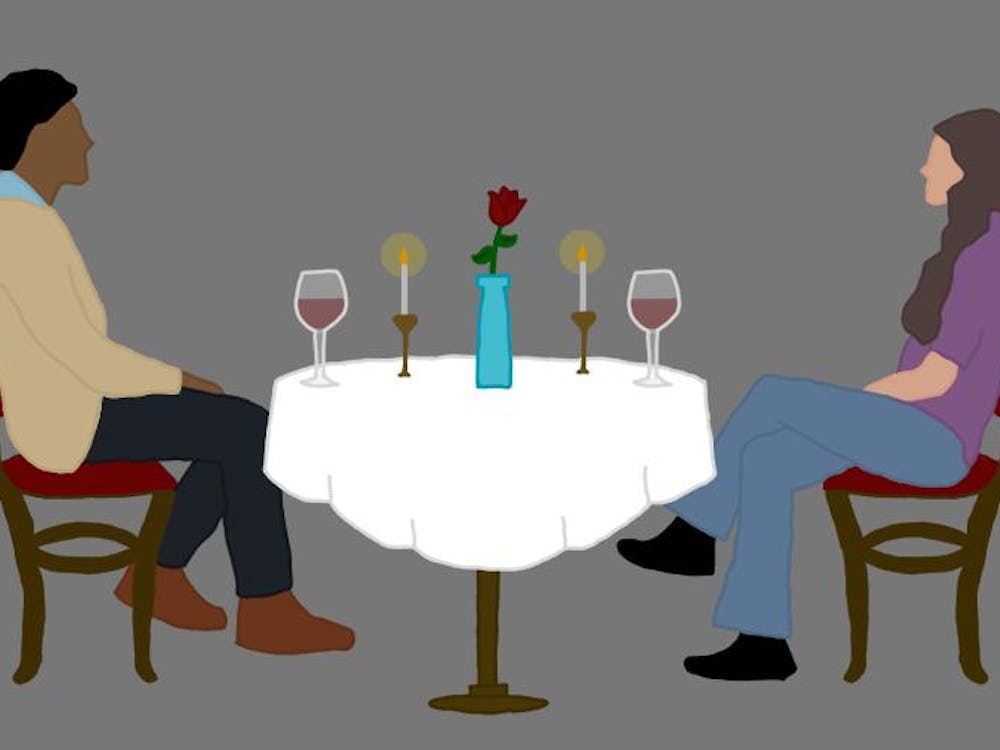Last Friday found many students travel-ing around Virginia for a reason unrelated to Monday's reading holiday. Fourth-year College student Andrew Morgan was no exception. Along with two other University students, he drove to Lynchburg -- but this trip could hardly be deemed a vacation. Morgan, like hundreds of other fourth-year students, was scheduled to take the LSAT (or Law School Admissions Test) the following morning.
The five-section, approximately four-hour test is a major criterion for applying to most law schools in the United States -- and a major nail-biter.
Remember the College Board-administered SAT from high school? (How can you forget?) In some ways, the LSAT, which is administered by the Law School Admissions Council, presents a similar challenge. The LSAT can be a big hurdle because it is difficult, lengthy and a crucial step toward the ultimate goal: getting into law school.
Prior to the test, University students said they were feeling the pressure.
"The build-up to the test was more nerve-wracking than it was for the SAT," fourth-year College student Lauren Piccillo said. "Seeing my friends freaking out about it only added to my nervousness."
Fourth-year College student Lauren Charneski also said she felt intense pressure as the test loomed nearer.
"The LSAT definitely holds greater repercussions" than the SAT, Charneski said. "There's the possibility of not getting into law school."
Morgan reflected that he was not particularly nervous for the exam until the night before. For him, the most suspenseful moment was right before the test commenced.
"It's like being at the top of a rollercoaster right before the plunge," he recalled.
Although they said they were nervous, many University students said they prepared themselves well enough that they felt confident on the big day.
Piccillo took a course offered by Kaplan, a professional test preparation company.
"The course forced me to study, and made me feel calm and well-prepared when I walked into the room," she said.
Fourth-year College student Leland Jones said he found test preparation books to be particularly helpful.
"Once you begin to take practice tests, you can hone the strategy that works for you," Jones added.
Some students said the most difficult part of all can be the race against the clock.
"Thirty-five minutes per section turns out to be a very short amount of time," Jones said.
Because time truly is of the essence during this test, Charneski advised any student taking the LSAT to bring a soundless digital timer, which helps with pacing.
"It's partly an endurance test, and it's designed to be that way," Piccillo said. "Law school is supposed to test your mental agility in tough situations like that."
As Piccillo suggested, the test seems to relate to skills that students would need in law school -- the ability to reason quickly, think on-the-spot and manage time -- all in spite of mental exhaustion. And you thought an all-nighter at Clemons was intense.
But now these law school hopefuls can breathe easy -- the day they had been dreading for months is over.
Charneski recalled the mood in her testing room when the test had ended.
"A couple of people in the back of the room started laughing -- they could finally relax," she said.
As the mental haze wore off, the potential law students became fourth-year college kids once again. Morgan and his fellow LSAT-survivors unwound afterwards by going out to dinner and celebrating.
With their honeymoon period coming to a close, students are catching up on schoolwork -- plus all the fun that they may have missed out on during their formerly cloistered existence. Jones said he is "glad I'm done because now I have at least an extra hour every day," an hour he used to spend worrying about and preparing for the test.
Yet the exam does leave its residual pins and needles; students won't find out their scores until three weeks after the test date, after which some students decide to retake the test, which is offered four times annually.
Whatever they decide to do in the future, the LSAT is an experience that these students are unlikely to forget. As Morgan said, "The whole experience is like a rollercoaster."






